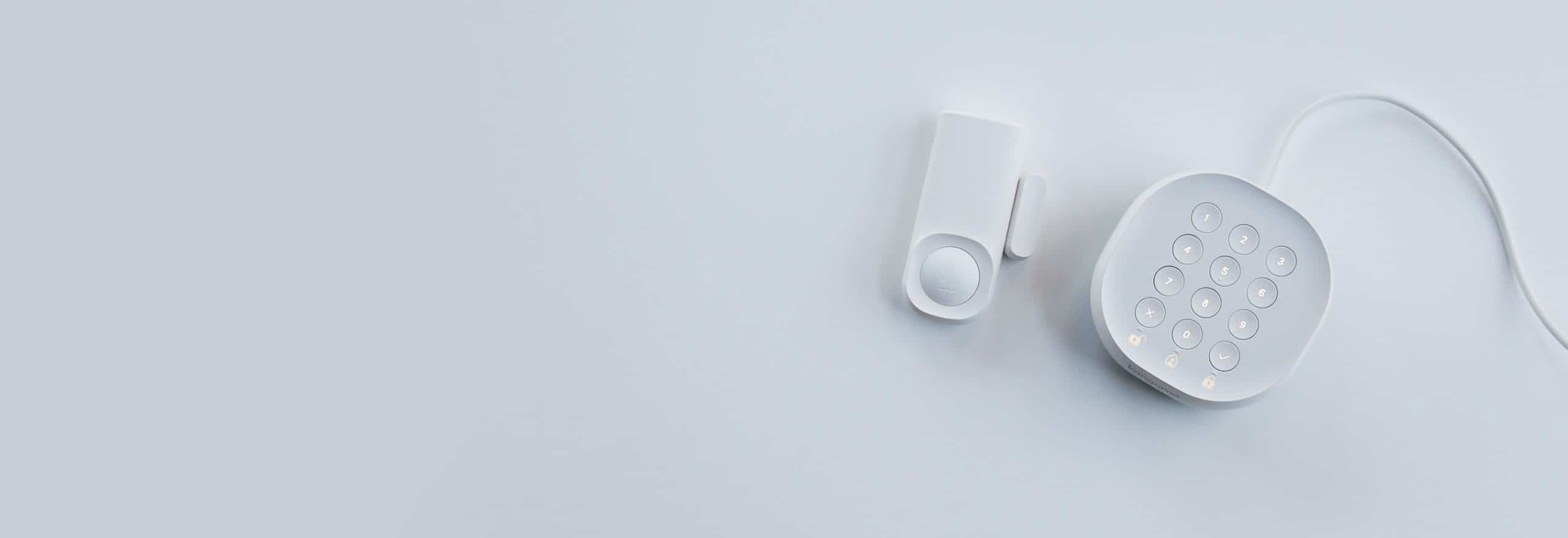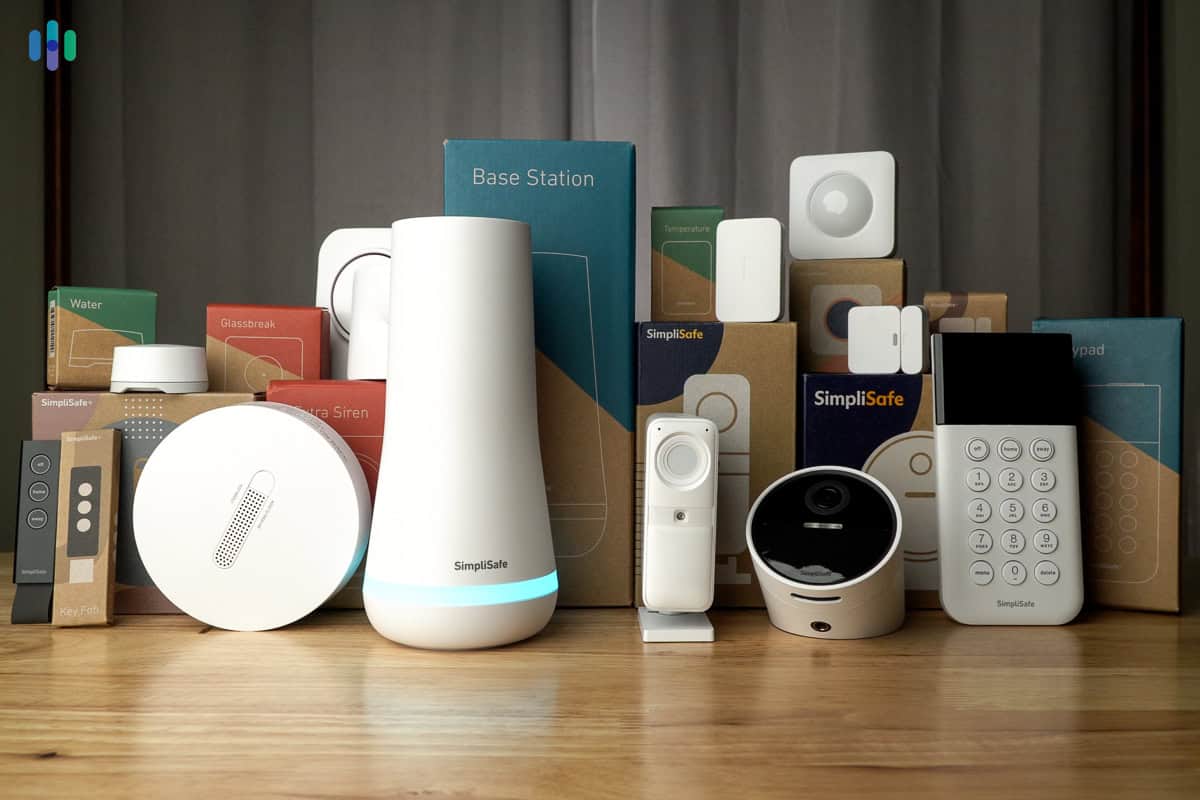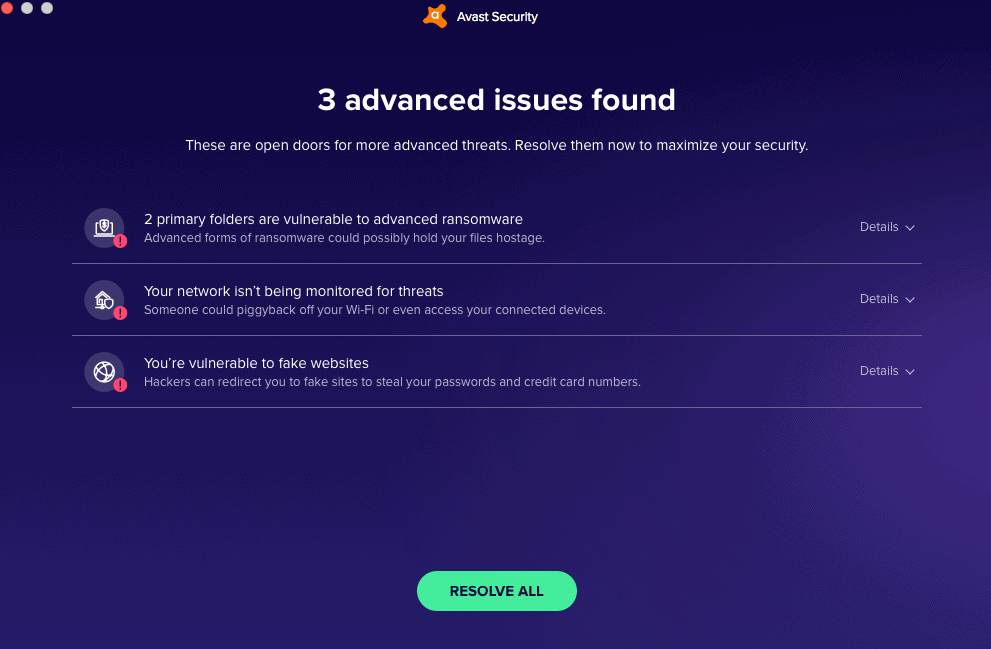Written By: Security.org Team | Published: March 17, 2023
We get it; it feels like we’re nagging, constantly reminding you to get a security system. But seriously: Your home needs a security system.
The thing is, it’s not the act alone of getting a security system that keeps your home safe. It’s picking the best security system for your unique home setup to maximize its security potential. And just as there are top-notch security systems, there are also bad apples you should absolutely stay away from. Below are three of the worst security systems we’ve personally encountered, and they’re not the only ones. But taking a look at their examples can help you identify what to avoid when you finally decide to buy a security system.
Three Alarm Systems You’re Better Off Avoiding
We feel so strongly about the problems with these three systems that we don’t even want to waste time on an introduction. You need to know about them now, before you make a decision you may regret later.
Night Owl
We’ll be honest: We like the name of this one. It sort of makes us feel like we’re in a Harry Potter movie, and who wouldn’t love to have their own Hagrid stationed right outside the front door? Unfortunately, this system doesn’t come with any Hagrids. It does, however, come with some headaches.
Our first inkling that something might be amiss with this company was when we discovered a few of their claims weren’t exactly … what’s the right word? … true.
For instance, Night Owl claims to be a member of ONVIF, an organization dedicated to standardizing communication between different types of security systems. Not only that, ONVIF standardizes the security of those connections as well. It would be awesome if it were true that Night Owl is a member, but unfortunately, it is not. There are even GitHub and Reddit forums that provide instructions on how to junk Night Owl’s firmware from the cameras, so that you can program them yourself if you have the technical know-how. That’s how bad Night Owl’s software is.
Similarly, Night Owl makes large claims about how long its camera batteries last: a minimum of six months, and usually up to a full year. That wasn’t our experience, though. We found they lasted around three to four months, max.
It didn’t help matters that Night Owl refused to give us any upfront pricing information. They do now, so that’s an improvement. But when we bought our Night Owl cameras to test, we had to contact a sales representative, which gave the company a chance to subject us to hard-core sales tactics.
Among other things, the representative tried to convince us that we didn’t need door sensors or motion detectors. As security researchers ourselves, we know that’s not true. Turns out, the reason he was working so hard to sell us on that idea was that Night Owl doesn’t sell those things; they only sell cameras and recording devices. If a company is willing to endanger the security of customers in the name of sales, they’re not worth dealing with.
If you’re looking for a great system that includes both highly-rated cameras and door and window sensors, you might want to check out our review of SimpliSafe. If you’re looking for just security cameras – with far superior hardware and software than Night Owl – check out our Lorex review.
Safe Home Security
What’s worse than ambiguous technology claims and no upfront pricing? Business practices that are borderline shady. Unfortunately, that seems to be the way Safe Home Security operates (not be confused with SafeHome.org, a reputable site). The equipment wasn’t terrible. A little pricey, maybe, but it all worked, and we received both security cameras and entryway sensors. Equipment prices can reach upwards of $600, though, and the cheapest monitoring plan is $39.99 a month. Compare that to Ring’s monitoring plan, which is a full $20 less.
Pricing was the least of our concerns though. Safe Home Security insisted that we sign a five-year monitoring contract, which was quite unusual in the home security market. We know a handful of companies that offer monthly contracts, and those that require long-term contracts max out at three years. There are companies that offer five-year contracts that still made our top 10 list though, like ADT and Vivint, but with those, signing a five-year contract is optional. They don’t require it like Safe Home Security did.
We were more alarmed – no pun intended – when we discovered why the company was so anxious to lock us into a contract. Apparently, the company can become downright predatory if you try to get out of that contract. It also doesn’t like to help customers move, for instance, and seems to have no qualms about charging customers for service they don’t actually have. Of course, you can cancel your contract, assuming you’re willing to pay up to $2500. In fact, just recently, the company was forced to pay a $6.5 million settlement for trapping users in auto-renewing contracts and engaging in illegal debt collection practices.
Pro Tip: Reputable companies offer long-term contracts up to five years to customers who are looking to enjoy a lower (or no) upfront fees and cheaper monthly equipment payments. For example, you can get a $500 ADT system without an upfront fee by paying for it in $4 per month payments over the course of a 60-month (five-year) agreement. You have contract options as short as 24 months though. Read more about ADT’s pricing here.
Platinum Protection
By far, our least favorite alarm system, though, is Platinum Protection. This is another one of those companies that insist they can only offer service if you sign a five-year contract. Are you sensing a pattern? Worse, the company’s sales force is apparently under so much pressure that they don’t mind telling outright lies to get your business. Ours told us it was easy to get out of that lengthy contract if we needed to, though when we called the company directly, the customer service representative told us in no uncertain terms that this claim wasn’t true.
We should mention that it took us a while to get that answer. Platinum Protection touts its customer service on its website, but as these sales tactics suggest, customer service is actually one of the company’s biggest weak spots. Consider this: just a few of years ago, Platinum actually fired its entire workforce. Wondering how it deals with customer complaints when it doesn’t have any employees? So are we. In fact, we’re not sure how Platinum Protection is still in business at all. The company was also the subject of a $2 million lawsuit for money it apparently owes to Monitronics (now called Brinks, which is one of our top-rated security options). No surprise, then, that Platinum Protection does everything it can to keep customers from getting answers. Like other companies on this list, it refuses to publish its price packages. Oh, and if you want to contact customer service, make sure you do it before 9 p.m. because that’s when it shuts down.
You definitely don’t have to sign up for a long-term contract to get a great home security system. Don’t believe us? Check out our list of the best no-contract security systems.
Choosing the Right Alarm System
After hearing about these three systems, you might be turned off of home security completely. Don’t be. There are dozens of great companies out there. Just take a look at our list of the best home security systems. The trick is knowing exactly what to look for.
- Equipment: You always want to start your home security system search by looking for the right equipment. You want high-quality devices, and you want them to make use of the latest technology, like smart home integration and facial recognition. Your most important consideration, though, should be whether the company offers the equipment you need for your particular situation. Do you need indoor cameras, outdoor cameras, smart locks? Don’t settle for anyone who doesn’t offer them.
- Monitoring: We always recommend full-service 24/7 monitoring. It’s by far the safest alternative, and it guarantees your home and family are protected even if you’re under anesthesia at the dentist. If you must go DIY to save a little money, though, you still want a company that at least offers monitoring. That way, you can get it when you need it, like when you go on vacation. In other words, you want to go with a company that offers a number of different options.
- Installation: You can find companies that offer full installation and companies that are completely DIY when it comes to installation. Either can work. You just have to know what you prefer.
- Customer Service: Home security is a very personal product. You’re making an agreement with someone to watch over your family and belongings and keep them safe. There’s no excuse for a company that isn’t responsive to its customer’s needs. You should be able to get help 24 hours a day, seven days a week, via phone or internet, no matter what question you may have.
- Apps: You might have picked up on a theme here by this point. Security is serious business, and you can’t settle for subpar equipment and services. That goes for apps, as well. A company’s app needs to be intuitive and easy to use, it needs to give you total control over your system and, most importantly, it needs to be stable. A break-in or a fire is no time to worry about a wonky app.
- Price: Of course, all of the features your home system includes must come at a price you can afford. Obviously, that varies depending on your situation. In general, we prefer systems that cost between $200 and $600 and that provide monitoring for $20 to $40 a month. Our most important requirement, though, as this page suggests, is options. We’re not signing up with anyone that says we absolutely must sign up for five years.
FYI: When comparing prices, don’t forget to consider any installation fees or what you might have to pay if you move to a new location.
Recap
Hopefully, this little exercise didn’t scare you off. That was certainly not our intention. You need a rock-solid home security system, the best you can afford. And the good news is that there are plenty of great ones out there to choose from.
Unfortunately, though, there are also plenty of terrible companies out there, too, companies that won’t keep you safe and that have no scruples when it comes to their business practices. Like anyone else shopping for any other product, you deserve honest information so you can make an informed choice. Home protection is essential, but it isn’t cheap, and we want to make sure you don’t make any decisions you eventually come to regret.





